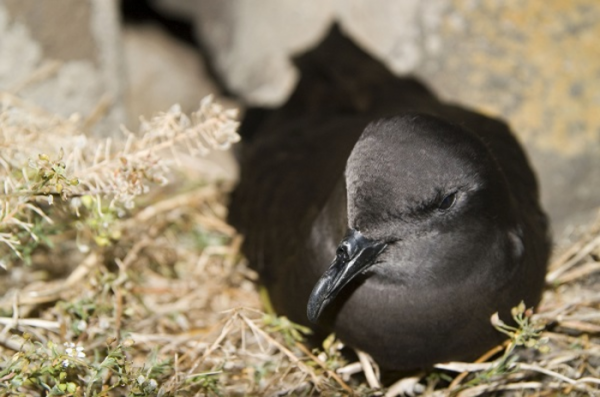The impact of the rise in sea temperatures predicted by the Intergovernmental Panel on Climate Change (IPCC) could affect the survival of the North Atlantic populations of Bulwer's petrel in the Azores, Canary Islands and Cape Verde, according to a study conducted by the Seabird Ecology Group of the Faculty of Biology and the Biodiversity Research Institute (IRBio) of the University of Barcelona. The seabird population of Cape Verde would be the most vulnerable to the new climatic conditions, according to the conclusions of the study, published in the journal Science of The Total Environment.
Bulwer's petrel (Bulweria bulwerii) is a pelagic seabird of the Procellariidae family that feeds on fish, cephalopods and crustaceans. In the Atlantic Ocean, the species nests in the Macaronesian archipelagos, particularly on coastal rocks, small islets and sea cliffs. About half of the specimens from the Azores and the Canary Islands migrate to the South Atlantic, while the rest of the individuals from these archipelagos and all the birds from Cape Verde spend the non-breeding season in the central Atlantic.
The study analyses the effects of climate change on these seabird populations in temperate or tropical areas. "The effects of climate change have always been predicted to be severe in polar environments, so most demographic studies on seabirds have prioritised sampling in Arctic or Antarctic areas", says Raül Ramos, lecturer at the Department of Evolutionary Biology, Ecology and Environmental Sciences of the UB and IRBio. “Our study —adds the researcher—, provides the opportunity to test that the impact of climate change will certainly not only affect species from polar latitudes, but also other species confined to more tropical environments".
Read More at: University of Barcelona
Bulwer's petrel is a pelagic seabird of the Procellariidae family. (Photo Credit: Raul Ramos (University of Barcelona- IRBio)


